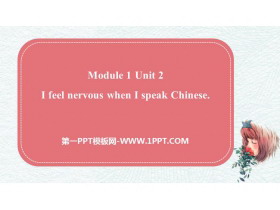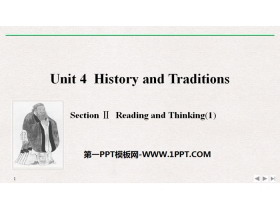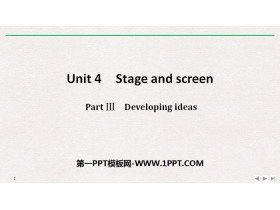![图片[1]-《I feel nervous when I speak Chinese》Feelings and impressions PPT免费下载-第一PPT](/images/2025/0403/2_220715142959_1.jpg)
![图片[2]-《I feel nervous when I speak Chinese》Feelings and impressions PPT免费下载-第一PPT](/images/2025/0403/2_220715142959_2.jpg)
外研版八年级英语下册《I feel nervous when I speak Chinese》Feelings and impressions PPT免费下载,共13页。
Thanks for your last message.
Thanks for… 因……而感谢
该句话是因某事而感谢对方的常用句式,相当于Thank you for…,for后接名词、代词或动名词。
message 用作名词,意为“电子邮件;口信;信息”。
It was great to hear from you, and I can’t wait to meet you.
It be 形容词 to do sth. “做某事是……的。”
it用作形式主语,真正的主语是后面的不定式短语。
不定式前还可加of sb.或for sb.
It’s important for us to learn English.
形容词用于描述事物
It’s kind of you to help me.
形容词用于描述人
Sb. can’t wait 表示“某人等不及了。”
Sb. can’t wait to do sth. 表示“某人迫不及待去做某事。”
I hope you will know me from my photo when I arrive at the airport.
arrive 用作动词,意为“到达”。
arrive, get to 和 reach
1. arrive 意为“到达”,后接地点名词时,通常要使用介词in(大地点)或at(小地点)。
2. get to 意为“到达”,后直接接地点名词。
3. reach 意为“到达”,后接地点名词时,不使用任何介词。
… … …
关键词:I feel nervous when I speak Chinese PPT课件免费下载,.PPT格式;















暂无评论内容